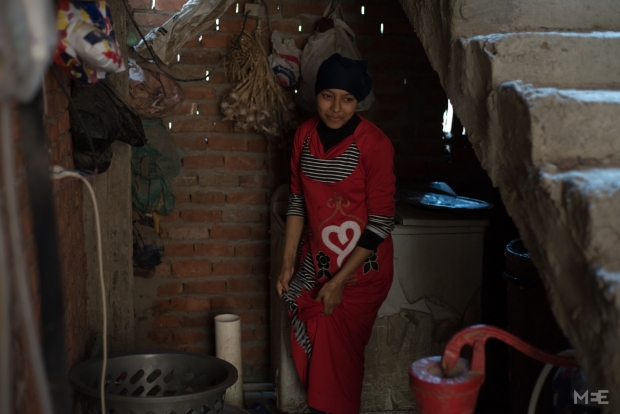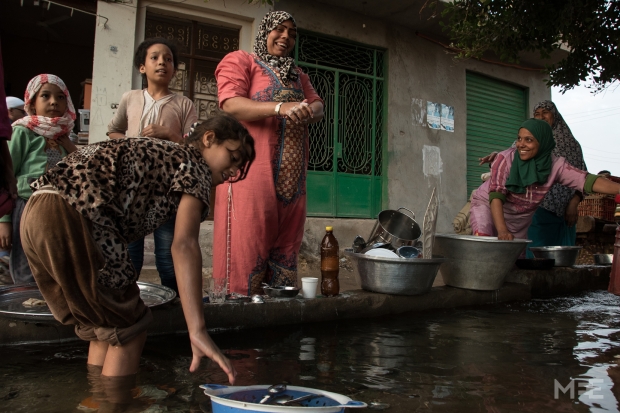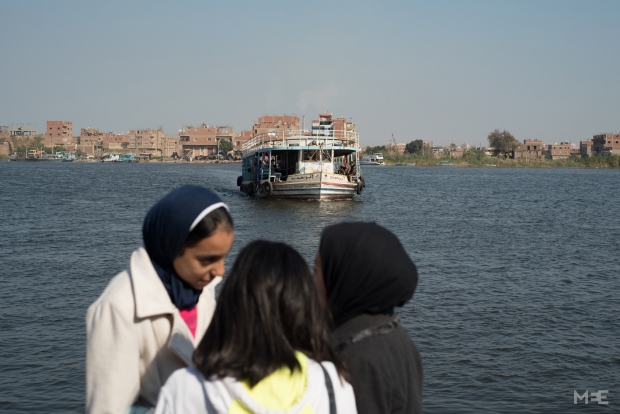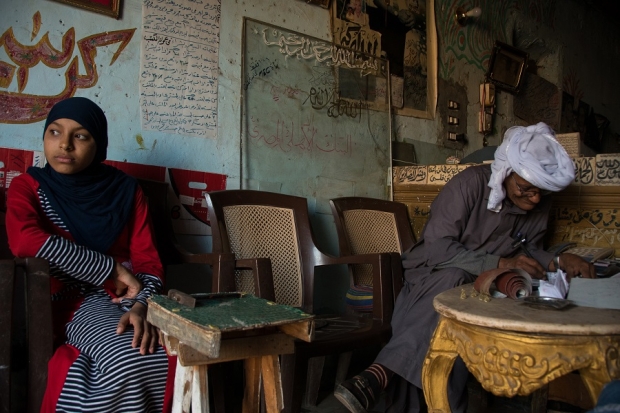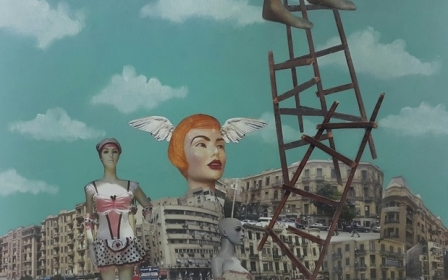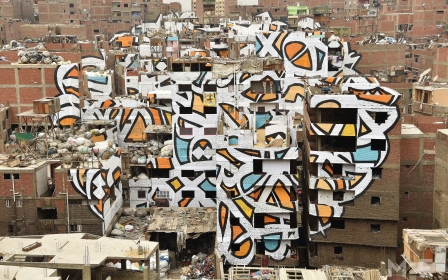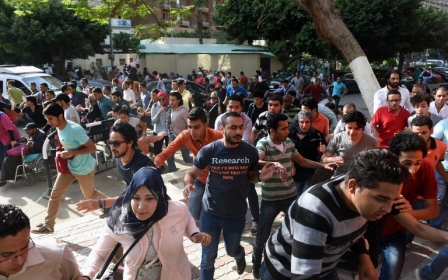Life on an impoverished Nile island 'between the two seas'
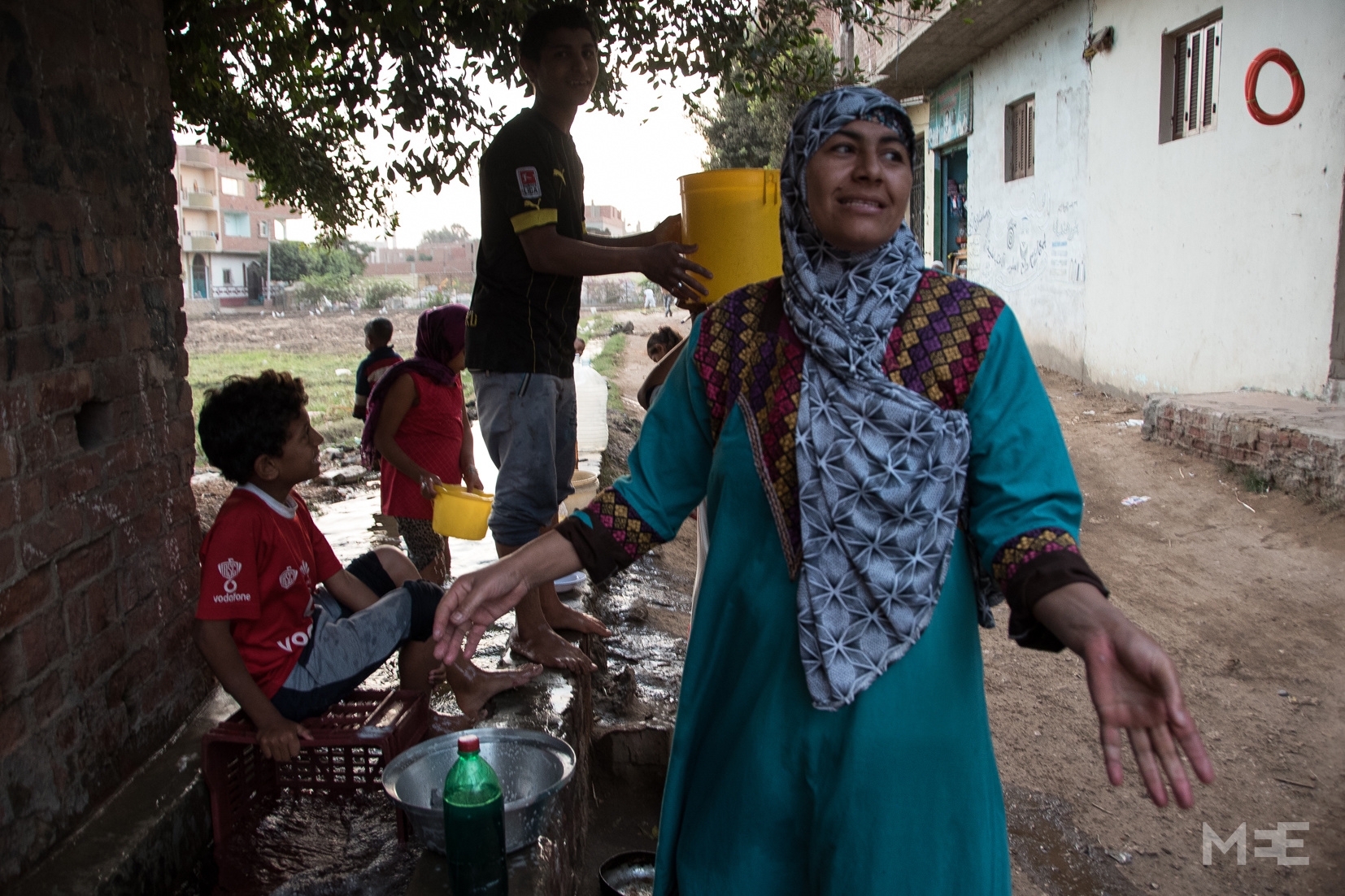
WARRAQ ISLAND, Egypt - “For people who have four or five kids now, how are they supposed to live? Everything is expensive now... rice, sugar, tomatoes… everything.” Abeer Mahrous sits on a bench in front of her home on a small hilltop, overlooking half-built, red-brick buildings separated by blotches of greenery on Warraq Island.
“What are [we] supposed to eat or drink? How are we supposed to live?” she repeats again, clearly exasperated. “Every time we try to buy something they say, "The dollar is getting more expensive, it’s the dollar; well what are we supposed to do about that?”
At the time it was 1 November and Mahrous and other residents were sceptical about the 11 November protests - which had been billed as the "Revolution of the Poor". They were unsure if anything would happen or who had even made the calls for demonstrations. The day came and went and now, more than a month later, they do not suspect that any follow-up "anti-poverty" protests will take place any time soon.
On 3 November, the Central Bank of Egypt devalued the pound in what was a move into a series of long-dreaded neoliberal policies that the IMF had necessitated before handing Egypt its first batch of a $12bn (US) loan.
The cost of the dollar is now officially approximately 18 EGP, while before the devaluation the dollar stood at 8.8 EGP, but had been selling for double the price on the black market. Since the flotation, inflation rates have reached their highest in seven years, registering at 20.2 percent in November, according to the Central Agency for Public Mobilisation and Statistics (CAPMAS).
Mahrous tells Middle East Eye that now “the price of everything has gone up by at least one pound, or a pound and a half,” and foodstuffs such as meat will be an even more extreme rarity for her family.
Mahrous, a mother of five children, was born on the island, which is popularly called “Between the Two Seas,” and has lived there all her life. Two of her sisters live nearby and her husband’s family lives next to her in the same little alley on top of the mud hill so that family is always close. The entire island is estimated to be home to around 100,000 inhabitants.
Warraq island is approximately an hour away from Cairo’s affluent island of Zamalek, home to famous landmarks like the Cairo Tower and the Cairo Opera House. Mahrous tells MEE that “for those who have [money], the price increases make little difference, but for us on Warraq island… we don’t know how we’ll manage.”
“My husband is a plumber, so he works from day to day. There’s no stable income,” Mahrous tells MEE as she explains how she manages her home.
“I want to make a cake, but I’m still waiting to buy gas,” Mahrous says as she warms up water for tea. A liquid petroleum gas (LPG) cylinder now costs 30 EGP, “because traders have to account for the costs of getting it to the island from outside,” she says.
She tells MEE that she now bakes everything from scratch by herself, even bread. “Flour is still expensive, but when I bake things, they taste sweeter and better,” she says, trying to see an upside.
As she mixes sugar into the tea, she jokes that she found out about the sugar crisis later than everyone else. “I used to live in a mud house, but we recently got to build [a brick house], so all of our relatives have been getting us sugar as a housewarming gift. I didn’t realise there was a crisis,” she says, laughing as her neighbours joke that she has been “storing sugar,” a charge which has actually landed some business owners in trouble with authorities since the start of the sugar crisis.
In times of deep economic crisis, Egyptian women, who tend to be the ones running and organising most households, find alternatives to make ends meet, argues sociologist Rasha Hassan, who has worked extensively with impoverished communities.
“[These women] will find alternatives for everything. Generally speaking, people have a capacity to find loopholes and adapt to the difficult conditions because they have to find ways to live,” Hassan tells MEE.
Food does not become the sole problem because they also have to cope with the increasing costs of healthcare and education.
Mahrous’s 15-year-old daughter, Ghada, will stop going to school after she finishes eighth grade. “The schools are too far away, and she’ll have to start taking lessons which will be too costly,” Mahrous reasons.
“Although she is a really good student,” she adds. Ghada herself tells MEE that she wants to continue her schoolings, but she does not yet know how to find a way to do so.
State neglect of the island
Ghada’s uncle, 65-year-old Hasan Badawi, has also lived on the island for most of his life and makes a living as an artist specialising in Arabic calligraphy. In his small shop, surrounded by his colourful and glittering artwork, Badawi tells MEE that the economy is harming everyone but that there are other problems unique to Warraq Island too.
“We need a sewage system. We don’t have clean water,” he says. Nearby, women stand by the banks of the Nile and wash their dishes and laundry. Because there is no sewage system, a lot of the waste is thrown back into the Nile, he explains.
Most other residents agree with Badawi, “Can you imagine, we live in the middle of the Nile and we don’t have clean running water?”
'Can you imagine, we live in the middle of the Nile and we don’t have clean running water?'
Other problems include the lack of hospitals and transportation. “There is one health unit, but it closes by midday,” Magdi Ali tells MEE. “There was one night, when I was ill and felt I was going to die, and I couldn’t find a boat to take me across [the Nile] to the city.”
Mahrous echoes the concern when she asks, “What are pregnant women supposed to do? There are women who have gone into labour and haven’t had enough time to make it to the hospital.”
To get to the city from the island, residents of Warraq take a ferry boat for about half a pound a ride. However, at midnight the ferry stops and the residents criticise it for being generally unsafe. While the government is currently building a bridge to the mainland, residents tell MEE it is not yet open for use.
The state has previously attempted to take the island from its residents, but its attempts failed after the islanders refused to move. Um Mohamed, Mahrous’s neighbour, traces the incident back to the heydays of former President Hosni Mubarak and says that since then the state has retreated.
These problems have existed for years and years, she says, “and people have got used to it but it’s still an injustice”.
Walking back from her uncle Badawi’s house, Ghada hopes her mother has thrown out the used water. If she has not, then Ghada will have another chore to add to her to-do list. She still wants to live out the rest of her life on the island despite all of its hardships and lack of services and she is resigned to the fact that authorities will probably never turn an eye to the concerns of the islanders.
“It’s my home, and it’s my father’s home. Where else can I go? I know half the island, and if anyone [or anything] ever bothers me, I’ll always have someone [to turn to].”
This article is available in French on Middle East Eye French edition.
New MEE newsletter: Jerusalem Dispatch
Sign up to get the latest insights and analysis on Israel-Palestine, alongside Turkey Unpacked and other MEE newsletters
Middle East Eye delivers independent and unrivalled coverage and analysis of the Middle East, North Africa and beyond. To learn more about republishing this content and the associated fees, please fill out this form. More about MEE can be found here.


